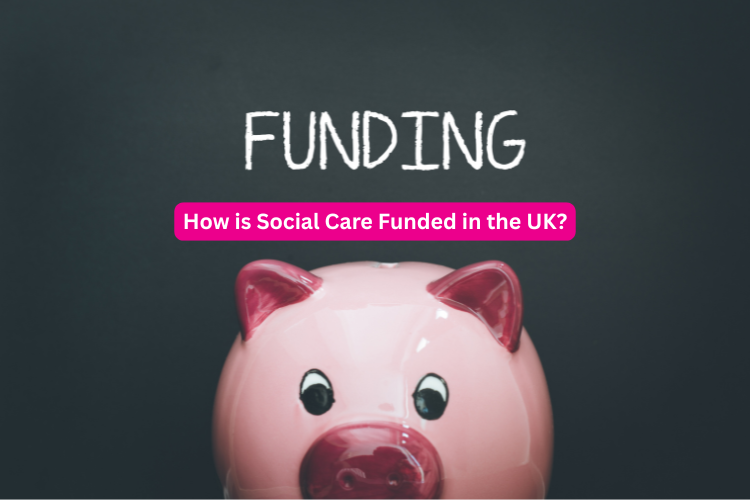
Published in Social Care on 11/06/2025
Social care in the United Kingdom plays a critical role in supporting older people, individuals with disabilities, and those with complex needs to live with dignity and independence. Yet, despite its importance, social care does not enjoy the same “free at the point of use” status as the NHS. Instead, the funding landscape is a patchwork of public grants, local taxation, and private contributions—underpinned by a system that is both fragmented and, many argue, unsustainable.
At the heart of social care funding is the local authority. Councils across England, Wales, Scotland, and Northern Ireland bear the legal responsibility for providing adult social care services. To fulfil that role, they draw on a mix of funding sources. The majority of their income comes from central government grants—such as the Social Care Grant and the Improved Better Care Fund (iBCF) but they also rely heavily on revenue generated locally through council tax, including a designated social care precept, business rates, and fees charged for services.
For the financial year 2023/24, local authorities in England alone spent approximately £23.3 billion net on adult social care. This made it the second-largest item in their budgets, just behind education. Altogether, public funding accounts for roughly 72% of the total spend on adult social care in the UK, with the rest coming from individuals who must contribute to or fully fund their own care.
One of the central government’s most significant contributions is the Social Care Grant. In 2025/26, this is expected to provide around £6 billion in ring-fenced funding for adult and children’s social care. Additional streams such as the iBCF designed to promote integration with NHS services—and various market sustainability and discharge funds offer targeted support for easing hospital pressures and stabilising local care providers. However, councils have warned that these pots are not keeping up with demand. Rising wage costs, driven by increases to the national living wage and employer National Insurance contributions, mean that even with grant increases, many local authorities face significant shortfalls just to maintain existing services.
To make up the gap, councils have increasingly leaned on local taxation. Council tax, and specifically the social care precept, has become a vital lifeline. For the 2025/26 year, authorities are permitted to raise an additional 2% through this precept, expected to yield around £650 million. Despite this, pressures remain acute. Councils often report that income from taxation and central funding still leaves them struggling to cover even basic care provision.
The system also heavily relies on user contributions. Social care in the UK is means-tested. This means that if you have assets—including savings and in some cases, the value of your home worth more than £23,250, you are expected to fund your own care entirely. Those below this threshold may receive support from their local council, but even then, contributions are often required. People can end up paying hundreds, or even thousands, per week for residential care. Those who do qualify for help might still find their choices constrained, or the level of support insufficient.
For individuals who prefer more autonomy over how their care is delivered, there is the option of receiving Direct Payments, cash amounts provided by the council so the person can arrange their own services. In some circumstances, especially where long-term care is linked to medical conditions, individuals may be eligible for Personal Health Budgets funded by the NHS. But navigating the eligibility rules and administrative hurdles often feels like a labyrinth, particularly for older or vulnerable people without strong advocacy.
Meanwhile, self-funders those who don’t qualify for state assistance—often face significantly higher care costs than councils are willing to pay for the same services. A care home might charge a private resident £1,800 a week while receiving only £1,000 from a local authority for a publicly funded placement. This discrepancy has led many providers to depend on self-funders to remain financially viable, raising difficult ethical questions about equity and sustainability.
As of 2025, the landscape is facing further change. The new government has pledged to establish a National Care Service and has announced the formation of a commission to design its structure and scope, expected to report by 2028. The hope is that such a service could one day offer more consistency and less financial risk to individuals who need care. Until then, however, the current system remains complex, means-tested, and stretched at the seams.
Social care in the UK operates on a delicate balance: public responsibility, private obligation, and political will. Without substantial reform and clearer funding commitments, that balance risks collapsing, leaving some of the most vulnerable people in society to carry an unfair share of the burden.
CareCubed is one solution that hopes to create Sustainable Social Care by providing clear data between Care Commissioner and Care Providers the fair cost of care through our Cost of Care Calculator. To find out more more about how CareCubed can help, contact the CareCubed Team.







